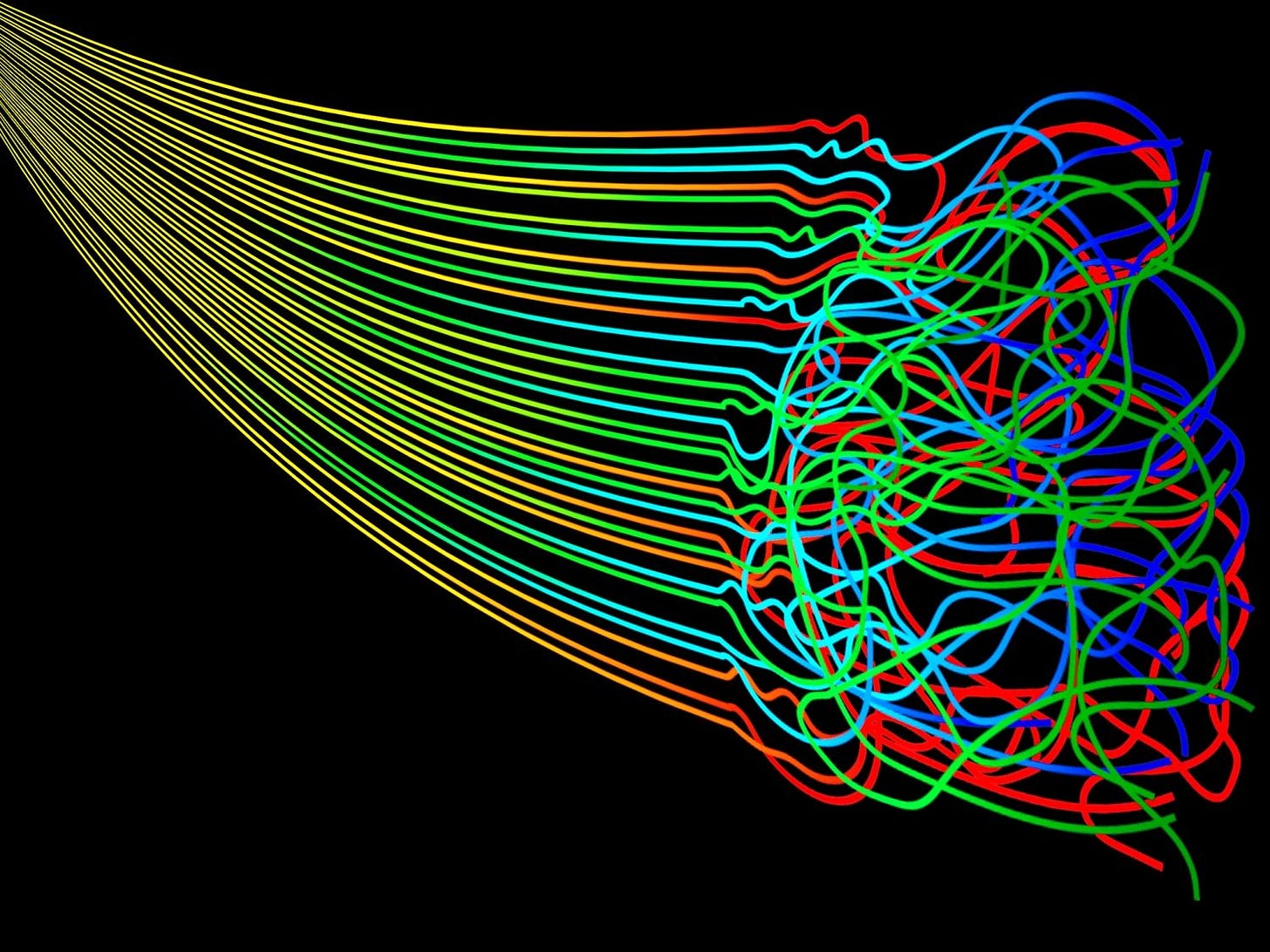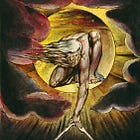I’m currently mulling over the possibility of switching my focus from pure math to statistics, which gives me a lot of time to think about the differences between probability and every other field of math.
Statistics is, career-wise, very useful, more useful than math or computer science or in my opinion even engineering. But, I only really enjoy the utility of it. I don’t enjoy probability on its own that much, and it all has to do with the nature of probability. It feels sort of heuristic. And yet, the more I have taken stats classes, the more I have realized just how ubiquitous the art is. It is the rock on which we have built our modern technological world, and that all has to do with the relationship between statistics and science.
People assume that the Scientific Revolution came with an increased level of trust in the factuality of phenomenal laws, but it’s really the exact opposite. The principle which underlies the scientific method is that we are ultimately naive to the inner workings of this world. As I have discussed before, scientific facts are not “true” in the way that a mathematical or metaphysical fact can be true, because our senses are imperfect. The best we can do is observe things which happened in the past, and say that if it happened like that in the past with the same conditions it will probably happen like that again in the future (this itself is based on observation). This is why scientific experiments rely on large sample sizes and replicability. They narrow the possibility of our results being not indicative of some sort of prior cause, but simply the result of chance, as much as possible. It is because outcomes cannot be said to be fully determined by priors that we have to convert data into statistics, that we have to convert particular values into probability waves (ex: using a sample mean instead of an observed mean).
Intuitively, this is true. There are things in this world which ostensibly rely on chance. What genes you will inherit from your parents, what the weather will be in a week, what the winning lottery number will be, et cetera. However, for a while it seemed like our greatest scientists were heading in the direction of determinism — the notion that if you had complete knowledge of the exterior world, you could predict everything to come with 100% certainty. This is not exactly the same thing as fatalism, because fate is not something you can come to know through physical means. A good analogue to this would be if you were attempting to predict with a sample the average height of an entire country. You can find a probable range in which that average lies using statistics, but there does actually exist an average height if you simply were able to take everyone in the entire country and measure them and calculate the average of all of those measurements. Is the entire universe the same way?
Well, the answer seems to be either “no” or “the universe is deterministic, but the information required to make an absolute determination is inaccessible”. The latter can be derived from quantum indeterminacy, while the former was part of the rift between Einstein and the followers of the Copenhagen Interpretation (Heisenberg and Bohr namely). Still today, a plurality of physicists support the Copenhagen interpretation, and a sizeable majority support Copenhagen or one of its derivatives such as Quantum Bayesianism or Information-based QM. In this case, the most fundamental element of matter and energy is not a quantity but a probability distribution, the wave function.
Probability can be considered as a generalization of the classic Aristotelian notion of hylomorphism. I talk about hylomorphism as a ground of world religious traditions in my W.I.P. essay on the Chaoskampf myth:
Unfortunately I haven’t had time to work on it lately, but I plan on adding more to it. It’s mostly spent cataloguing the instances of hylomorphic cosmology across the mythological traditions of Eurasian language families.
Anyways, Aristotle associates matter or hyle with potentiality, and form or morphe with actuality. A classic example of an ideal object than a number, which is found in the parameters of the probability. Meanwhile, there randomness of the probability — that which makes it a probability distribution and not simply a function, relies on the notion of potentiality in order for it to have the properties it does. A random variable is, from a naive perspective, pure potentiality. It is an object with the possibility of being something, but this “something” is unknown. It is ordered by the actual quantifiers of the probability distribution, making the probability wave a hylomorphic object.
This interplay between potentiality and actuality, between the receptacle and the generative, is what makes change possible. For something to change it has to have the potential to be something other than what it is in actuality, and it is because things are constantly changing that no particular object is purely actual. We only have an intuition of actual objects which allows us to identify forms. The connection between potentiality and mathematical randomness is also what explains the connection in historical thought between potentiality, change, “receptacle-stuff”, and the notion of chaos. Entropy is not derived from some sort of physical constant or law of our universe — actually, our universal laws (namely the Second Law of Thermodynamics) derive themselves from entropy. Entropy is actually an artifact of the statistical law of regression to the mean. This is what Ludwig Boltzmann was setting out to prove with his famous “Boltzmann Brain”, that there is a constant possibility for reverse entropy to occur, it’s just that on massive systems it is highly unlikely. Let’s consider the classic example of thermodynamics. Let’s say you have some object A and B, and A is warmer than B. We can assign the heat energy in these objects to discrete “heat packets”. If all heat packets were randomly distributed between A and B, the expected number of heat packets in A and B would be equilibrium. Because there is a random transfer of heat every moment, the movement of heat packets is expected to draw the overall system closer to the outcome of the expected totally random distribution. Put in an extremely simple way, “lightning doesn’t strike twice”. I understand that this is difficult to unravel, and I’m certainly not doing the best job at explaining it, so here’s a visual, this time with the distribution of gas particles in a space (this page needs a hero!):

It is also for these reasons that I see any sort of Probabilistic argument with respect to metaphysics to be somewhat misguided. Probability is tertiary to God and secondary to metaphysics, to use it in order to prove things like God, the immortality of the soul, whatever, or disprove those things, is kind of strange and you end up hearing very wacky things. You also end up hearing some wacky things when you try to apply probability to the infinite numerical world — for example, the probability of picking a rational number out of the real numbers is 0. I think there’s a similar theorem for diagonalizable and non-diagonalizable matrices as well, I don’t remember. In fact, the probability of picking anything out of an infinite set of things is 0, so if you were to pick something out of such a thing you would break the laws of probability. That’s why continuous probability distributions have density functions and not mass functions. I heard a similarly fallacious approach to reincarnation once, even though I myself believe in reincarnation. It basically went like, “if you have an immortal soul, then your life is infinitesimally small compared to your total soul’s lifespan, so the probability that you are born once at a certain point is 0. So you must be born an infinite number of times”. And here I think the issue is more clear — you’re assuming randomness in an environment where there is no evidence for randomness or where randomness is ill-defined. You cannot assume there is a random selection process going on in a pre-random or para-random system.




Probability... Improbability... Whoah... Is this like a madness combat reference?
Aight, in all honesty, this is a very interesting article, i, like many-a-normgroid, hated math, however, recently i have had an avid intrigue in Mathematics, which strangely started late 2023 when my 50 something old autistic math teacher which uncannily resembled Principal McVicker from Beavis and Butt-Head quoted the Pythagorean motto of "All is number" and that math was an universal principle, since then i have been captivated by various mathematical concepts, Probability and Improbability being one of them, and also trying to focus more on calculus.
I must say, you posting an article about probability around the same time my teacher told me about Pythagoreanism last year, is kinda improbable.
i have a probability homework due this week, looks like i’ll be doing it on the last day